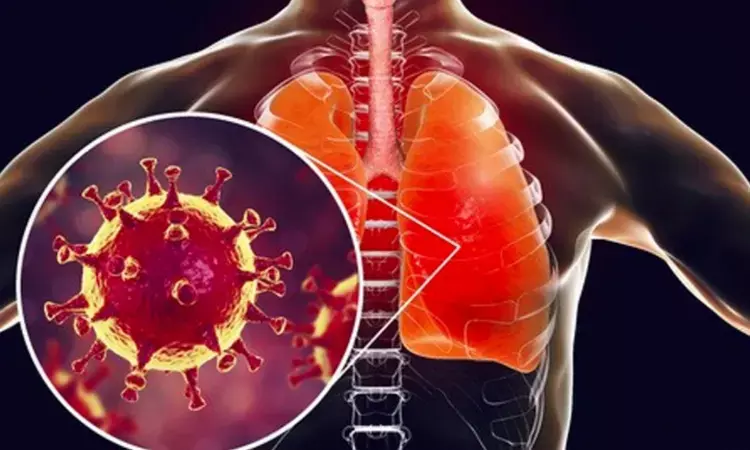- Home
- Medical news & Guidelines
- Anesthesiology
- Cardiology and CTVS
- Critical Care
- Dentistry
- Dermatology
- Diabetes and Endocrinology
- ENT
- Gastroenterology
- Medicine
- Nephrology
- Neurology
- Obstretics-Gynaecology
- Oncology
- Ophthalmology
- Orthopaedics
- Pediatrics-Neonatology
- Psychiatry
- Pulmonology
- Radiology
- Surgery
- Urology
- Laboratory Medicine
- Diet
- Nursing
- Paramedical
- Physiotherapy
- Health news
- Fact Check
- Bone Health Fact Check
- Brain Health Fact Check
- Cancer Related Fact Check
- Child Care Fact Check
- Dental and oral health fact check
- Diabetes and metabolic health fact check
- Diet and Nutrition Fact Check
- Eye and ENT Care Fact Check
- Fitness fact check
- Gut health fact check
- Heart health fact check
- Kidney health fact check
- Medical education fact check
- Men's health fact check
- Respiratory fact check
- Skin and hair care fact check
- Vaccine and Immunization fact check
- Women's health fact check
- AYUSH
- State News
- Andaman and Nicobar Islands
- Andhra Pradesh
- Arunachal Pradesh
- Assam
- Bihar
- Chandigarh
- Chattisgarh
- Dadra and Nagar Haveli
- Daman and Diu
- Delhi
- Goa
- Gujarat
- Haryana
- Himachal Pradesh
- Jammu & Kashmir
- Jharkhand
- Karnataka
- Kerala
- Ladakh
- Lakshadweep
- Madhya Pradesh
- Maharashtra
- Manipur
- Meghalaya
- Mizoram
- Nagaland
- Odisha
- Puducherry
- Punjab
- Rajasthan
- Sikkim
- Tamil Nadu
- Telangana
- Tripura
- Uttar Pradesh
- Uttrakhand
- West Bengal
- Medical Education
- Industry
No evidence of left ventricular dysfunction in COVID-19 survivors: BMJ

UK: Results from a prospective multimodality two-center observational study have shown that patients recovering from severe COVID-19 do not have evidence of left ventricular dysfunction compared with comorbidity-matched volunteers. However, right ventricular abnormalities do occur and likely indicate the consequences of severe viral pneumonia.
The study results, published in the BMJ journal Heart, suggest that prior reports of left ventricular myocardial abnormalities following COVID-19 may indicate pre-existing comorbidities.
There has been a major interest in the cardiac consequences of COVID-19, and it is requisite to establish the true impact of COVID-19 and its impact on healthcare in the years to follow. Trisha Singh, BHF Centre for Cardiovascular Science, The University of Edinburgh, Edinburgh, Edinburgh, UK, and colleagues, therefore, aimed to determine the contribution of comorbidities on the reported widespread myocardial abnormalities in patients with recent COVID-19.
For this purpose, patients hospitalized with confirmed COVID-19 underwent gadolinium and manganese-enhanced MRI and CT coronary angiography (CTCA). They were compared with healthy and comorbidity-matched volunteers after blinded analysis.
In 52 patients (median age: 54 years, 39 males) who recovered from COVID-19, one-third (n=15, 29%) were admitted to intensive care and a fifth (n=11, 21%) were ventilated.
Key findings of the study include:
- Twenty-three patients underwent CTCA, with one-third having underlying coronary artery disease (n=8, 35%).
- Compared with younger healthy volunteers (n=10), patients demonstrated reduced left (ejection fraction (EF): 57.4±11.1 versus 66.3±5 and right (EF: 51.7±9.1 vs 60.5±4.9 ventricular systolic function with elevated native T1 values (1225±46 vs 1197±30 ms) and extracellular volume fraction (ECV) (31±4 vs 24±3%) but reduced myocardial manganese uptake (6.9±0.9 vs 7.9±1.2 mL/100 g/min).
- Compared with comorbidity-matched volunteers (n=26), patients had preserved left ventricular function but reduced right ventricular systolic function (EF: 51.7±9.1 vs 59.3±4.9%) with comparable native T1 values (1225±46 vs 1227±51 ms), ECV (31±4 vs 29±5%), presence of late gadolinium enhancement and manganese uptake.
- These findings remained irrespective of COVID-19 disease severity, presence of myocardial injury or ongoing symptoms.
"Patients demonstrate right but not left ventricular dysfunction. Previous reports of left ventricular myocardial abnormalities following COVID-19 may reflect pre-existing comorbidities," wrote the authors.
"There is a need for further research to establish the true extent of cardiac abnormalities in patients who have suffered severe COVID-19 and to determine whether this is likely to impact on their long-term clinical outcome," they concluded.
Reference:
Singh T, Kite TA, Joshi SS, et alMRI and CT coronary angiography in survivors of COVID-19Heart Published Online First: 06 October 2021. doi: 10.1136/heartjnl-2021-319926
Dr Kamal Kant Kohli-MBBS, DTCD- a chest specialist with more than 30 years of practice and a flair for writing clinical articles, Dr Kamal Kant Kohli joined Medical Dialogues as a Chief Editor of Medical News. Besides writing articles, as an editor, he proofreads and verifies all the medical content published on Medical Dialogues including those coming from journals, studies,medical conferences,guidelines etc. Email: drkohli@medicaldialogues.in. Contact no. 011-43720751


